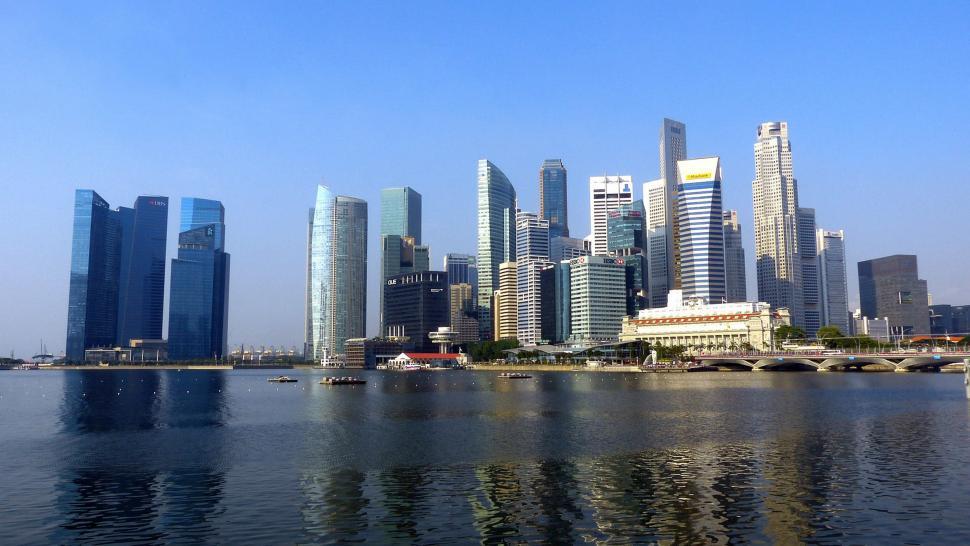Table of Contents
As a melting pot of cultures, Singapore offers a diverse range of housing options to accommodate the varied needs of expatriates. In this article, we aim to provide expats with valuable insights into the different types of housing available in Singapore, along with an overview of their associated costs. Whether you’re a newcomer to the Lion City or a seasoned expat looking to relocate, this guide will help you make informed decisions and find the perfect home in Singapore.
Public housing (HDB)
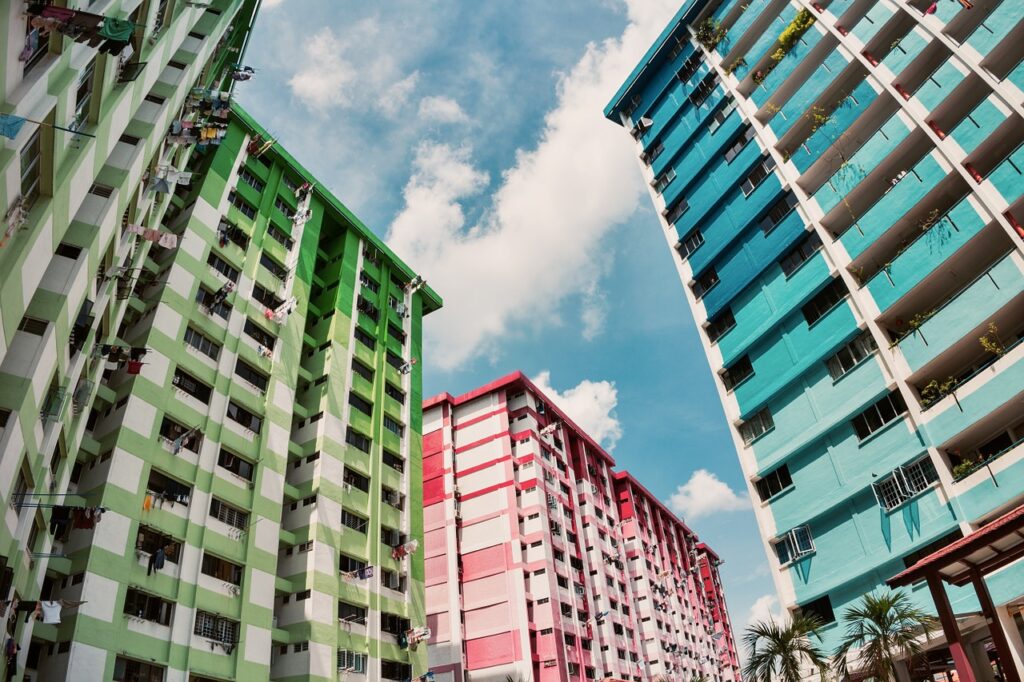
The HDB flats, built by the Housing and Development Board (HDB), offer affordable and convenient housing solutions for Singapore residents.
They are described as self-contained townships, incorporating all amenities in the same area, such as schools, parks, supermarkets, shopping malls and train stations. This fosters a sense of community among residents and reflects the Housing and Development Board’s commitment to enhancing the residents’ quality of life.
While HDB flats are primarily intended for Singaporean residents, expatriates can still find housing options within this system. Expats interested in renting HDB flats should engage with real estate agents to navigate the detailed procedures. Living in an HDB flat enables expatriates to seamlessly integrate into the local community, as they share residential spaces with Singaporeans, promoting cultural exchange and community integration.
The diversity of HDB flats caters to the varying needs of residents:
- 2 to 5-room flats comprise 1 to 4 bedrooms, a kitchen, a living room, a dining area, an ensuite bathroom and a common bathroom.
- Studio apartments offer an open-concept and self-contained living space. It’s worth noting the distinction between studio apartments and 1-bedroom flats is that the former features a separate bedroom from the kitchen and living room, while the latter does not.
- The 3Gen flat is specifically designed to meet the needs of multi-generation families seeking a spacious living arrangement. With its generous number of rooms and thoughtful layout, the 3Gen flat reflects HDB’s commitment to accommodating the diverse needs of Singaporean families as they grow and evolve over time.
Private housing
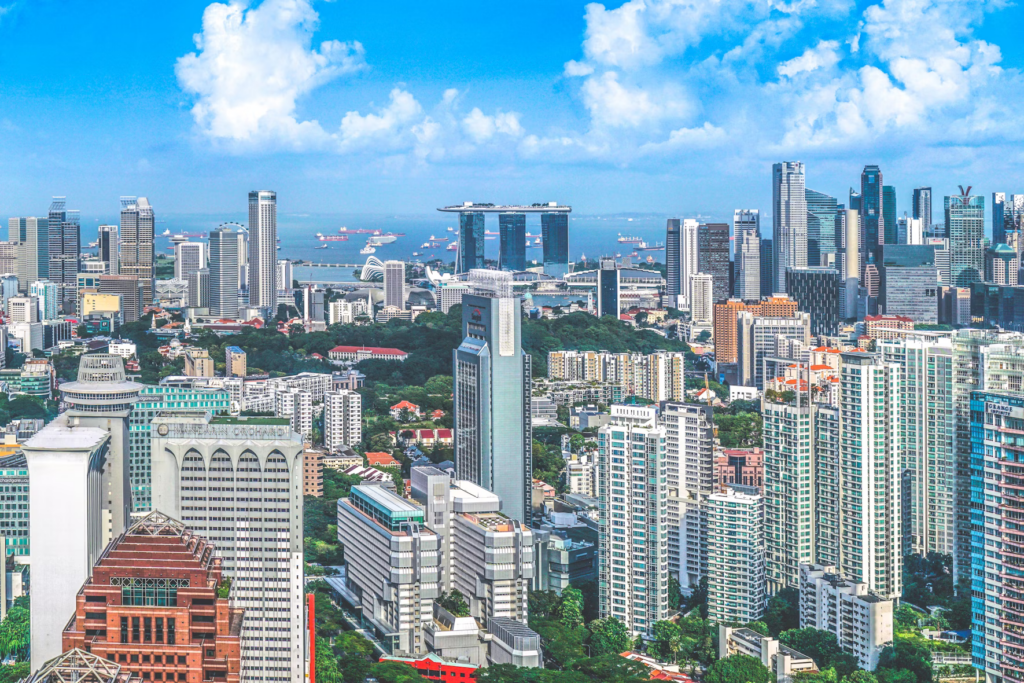
In addition to public housing, Singapore offers a diverse array of private housing options, catering to individuals seeking more luxurious and private accommodations. Two prominent forms of private housing are condominiums and landed properties, each offering distinct features and amenities.
Condominiums
Condominiums, commonly referred to as condos, are apartment buildings designed for private ownership. They provide residents with shared amenities such as swimming pools, gyms, and recreational areas. Condominiums come in two main types:
- Low-rise buildings: also known as walk-up condominiums, which offer a more intimate living environment and lower maintenance fees.
- High-rise buildings: these are much taller and more luxurious. They come equipped with various amenities like expansive swimming pools, gyms, and playgrounds for your little ones. While high-rise condos offer a more opulent lifestyle, they tend to be more expensive.
Landed properties
Singapore’s landed properties offer a diverse range of housing options, each characterized by its unique features:
- Terrace Houses: Commonly known as row houses, terrace houses share similarities with semi-detached homes but are organized in rows of identical houses with sharing walls.
- Shophouses: These properties are highly valued for their historical significance and rarity, and they are subject to strict conservation rules. Shophouses typically feature commercial spaces on the first floor, while upper floors may serve as offices, hotels, or residences.
- Semi-Detached Houses (Semi-Ds): These single-family residences share a common wall with another house, often boasting similar layouts and external appearances.
- Townhouses: Representing a fusion of landed homes and private condominiums, townhouses offer spacious living arrangements along with communal facilities such as gyms and swimming pools. This unique combination provides residents with both privacy and convenience.
Co-sharing living spaces
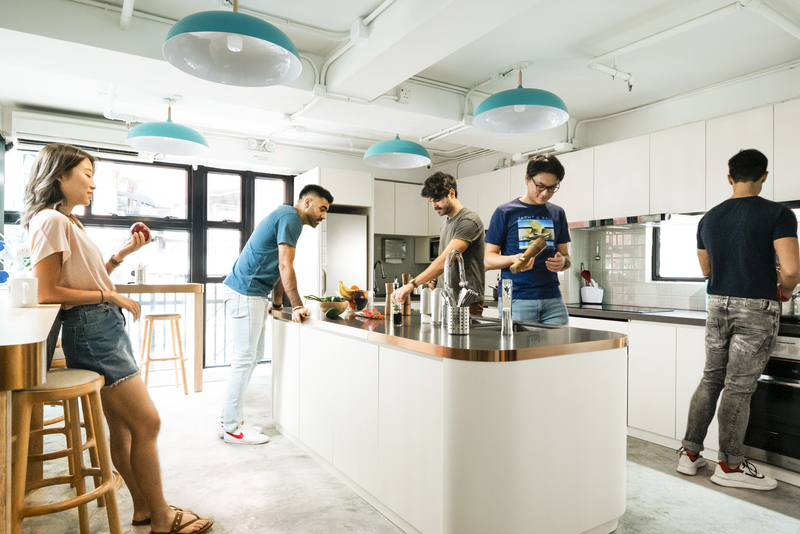
Co-living is a housing concept that embodies the essence of communal living. In these shared spaces, individuals live within a community setting, each enjoying their private bedrooms and bathrooms while sharing common areas like kitchens and living rooms.
With the minimum stay requirement of three months, co-living spaces have become a suitable choice for individuals, couples, and students.
Co-living spaces also emerge as an appealing option for those navigating tight budgets. By leveraging shared resources and spaces, you can enjoy the benefits of community living without compromising on affordability. Most of these spaces come fully furnished, which means your transition into the new communal abode should be quick and easy.
Summary
| Category | Types of Housing |
|---|---|
| Public (HDB) | Studio apartment 2-5 rooms flat Executive flats DBSS flats 3Gen flat |
| Public-Private Hybrid | Executive condominiums Private housing Apartments Walk-ups |
| Landed property | Terrace houses Conservation houses Shophouses Bungalow house Semi-detached houses Townhouse Co-sharing living spaces |
| Co-sharing living spaces | A shared space where individuals have their private bedrooms and bathrooms, while sharing common areas like kitchens and living rooms. |
What is the average cost of a house in Singapore?
| Housing Type | Average Price | Average Size (in square meters) |
| HDB Flat | S$633,166 | 87.6 |
| Condominium Unit | S$2.57 million | 89 |
| Landed Property | S$9.39 million | 405 |
Expats finding the right home in Singapore
Finding the perfect home in Singapore can be a crucial work for expatriates settling into the bustling city-state. With its diverse neighborhoods and housing options, expats often navigate a plenty of choices to ensure they find a residence that aligns with their lifestyle and preferences. Considering Singapore’s strict housing regulations and competitive rental market, expats often rely on professional real estate agents or relocation services to guide them through the process, ensuring a smooth transition to their new home in this dynamic global hub.
